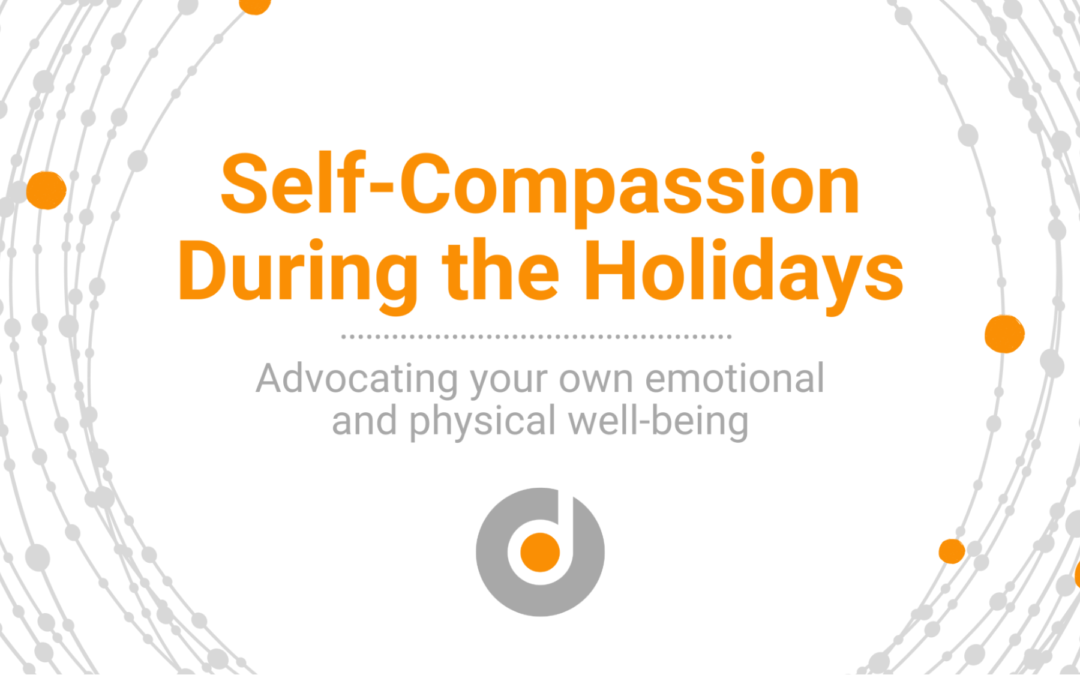Holidays can be one of the most stressful times of year, and not just because of figuring out what gifts your loved ones will cherish, and where the money will come from for those gifts.
The holidays often bring with them family. Family can be amazing to have around, but having all of one’s family in close proximity for so long can also trigger emotions caused by past trauma, dramatic events, misunderstandings, differences of opinion, or other potential sources of conflict.
This is before you get to the stress that comes with your personal expectations as a parent, or those of your child.
Not to be outdone, your body can also have a hard time holding up to the stress of holidays. Shopping, cleaning, never ending errands, cooking, constant additional communication, and extra personalities to manage can be physically and emotionally demanding.
Did we mention that the kids are often out of school and more prone to need attention?
Before you get caught in the hectic holiday cycle, create a plan. There is a saying we love that goes:
If you fail to plan, you plan to fail
And it is never more true than at holiday time. The first step to making sure you are able to survive the holidays is to understand what it does to you and why. This allows you to create a plan that lets you attack the things that drag you down before they become a burden.
Here is a place to start:
Understand What & Why
First, it is important to understand what stress does to your body. Many of the physical and mental things you experience are not your fault, they are the result of the stress that your body is experiencing.
Did you know that stress can affect almost every major system within the body? Whether we are looking at the respiratory system, immune system, or reproductive system, nothing is safe from the effects of stress on the body.
What is stress?
Stress is the body’s response to harmful situations. When the body feels as if it is under threat, whether physical and immediate or non-visible and impending, a chemical reaction occurs that allows the body to react in a way that protects itself from harm and prevents or minimizes injury. This reaction is called the stress response.
Sometimes termed the “fight or flight” response, when in this mode breathing quickens, the heart rate increases, muscles tense, and a person’s blood pressure rises. These steps prepare the body to react quickly to whatever threat might come before it.
Our bodies are designed to handle small doses of stress, however, it is not equipped to handle long-term, chronic stress.
The Effects of Stress on the Musculoskeletal System:
The musculoskeletal system is the way in which the muscles, tendons, ligaments, joints, and bones work together to provide form, stability, balance, and movement. Under stress, the muscles tense up to prepare for action. Whether that action is running or fighting, the muscles’ natural reaction is to increase tension to protect themselves. With sudden stress, the muscles tend to tense up all at once and then release their tension when the source of stress passes. Chronic stress causes the muscles in the body to essentially be in a constant state of guardedness, always ready for action.
This continued muscle tension can trigger many other issues within the body including such problems as tension headaches and migraines due to contracted muscles in the shoulders, neck, and head. This can also result in pain in the lower back and upper extremities, fatigue, and many other issues that can cause stress on the body.
The Effects of Stress on the Respiratory System:
The respiratory system supplies oxygen to cells and removes carbon dioxide waste from the body. Air comes in through the nose and travels down the throat, through the trachea, and into the lungs where they bronchioles then extract oxygen and transfer it to the red blood cells for circulation.
Stress and strong emotions can impact the respiratory system by resulting in shortness of breath and rapid breathing due to the airway between the nose and lungs constricting. This means the body has to work significantly harder to get the same amount of oxygen, or else by default it will start to become undernourished and not have the oxygen required for the muscles and brain. When the respiratory system is impacted by stress, we fall into chronic shallow breathing which takes away some of our clarity and can result in compounding anxiety and reduced capacity for making the right decision quickly. It also makes us tired faster.
Physical self-care
Your body requires maintenance in order to run effectively. This means seeing a top-rated chiropractor, getting trigger-point or deep-tissue massages, going for walks, and giving your body everything it needs to relax.
While massages are great for general relaxation, trigger-point and deep-tissue massages are specifically geared towards releasing the tension in muscles that is caused by stress. While your body is in a sustained fight-or-flight mode the muscles tense up and it can cause everything from the headaches mentioned above to digestion issues, lightheadedness, and problems absorbing vitamins and nutrients. Pre-scheduling appointments ensure that you are able to function at your best while dealing with everything that goes along with holidays. It has the added benefit of helping you get more out of your workouts, and stay loose while doing them, so you avoid injury.
Meanwhile, exercise releases endorphins which have a positive impact on feelings of stress, while helping blood circulation, mental clarity, and positive feelings about your body. Make sure to find activities that don’t feel like “work” such as hiking, kayaking, tennis, cycling, or any other activity you enjoy.
Create a special space
Find a place that allows you to disconnect from the world and quiet your mind. When you are in this place, do not think, just exist. Whether a peaceful garden, or a special outdoors location. Let your journey to that place, and your time there, be part of the process of letting go. And if you are one of the many that struggle with quieting your thoughts, bring your partner and tell them you would like them to be a part of positively distracting you. You can ask them to distract you or plan fun activities. The most important thing is to give your mind a break here.
Emotional self-care
To deal with the emotional turbulence, it is often important to evaluate the root causes of your anxiety and emotional volatility. Think about how the holiday season and your family is contributing towards your anxiety. Are you experiencing feelings of:
- Judgment. From family, in-laws, neighbors, other parents, and most importantly from your kids
- The weight of your expectations for what it means to be a good caretaker
- Feeling like if you do not do it, then it will not get done, and as a result, you are the holiday or the source of trauma if it does not go well
So how do you avoid the trap of self-expectations and judgment?
Forgive yourself!
That’s right. The key to emotional self care is to first admit that you are not a superhero and that your loved ones will love you regardless. Their love is not conditional, and for them, it is an event. They do not judge you forever on its “success” or “failure”. Let it go. Do the best you can, call for help when you need it, get everyone involved in the process, and delegate. DO NOT try to do it all yourself.

